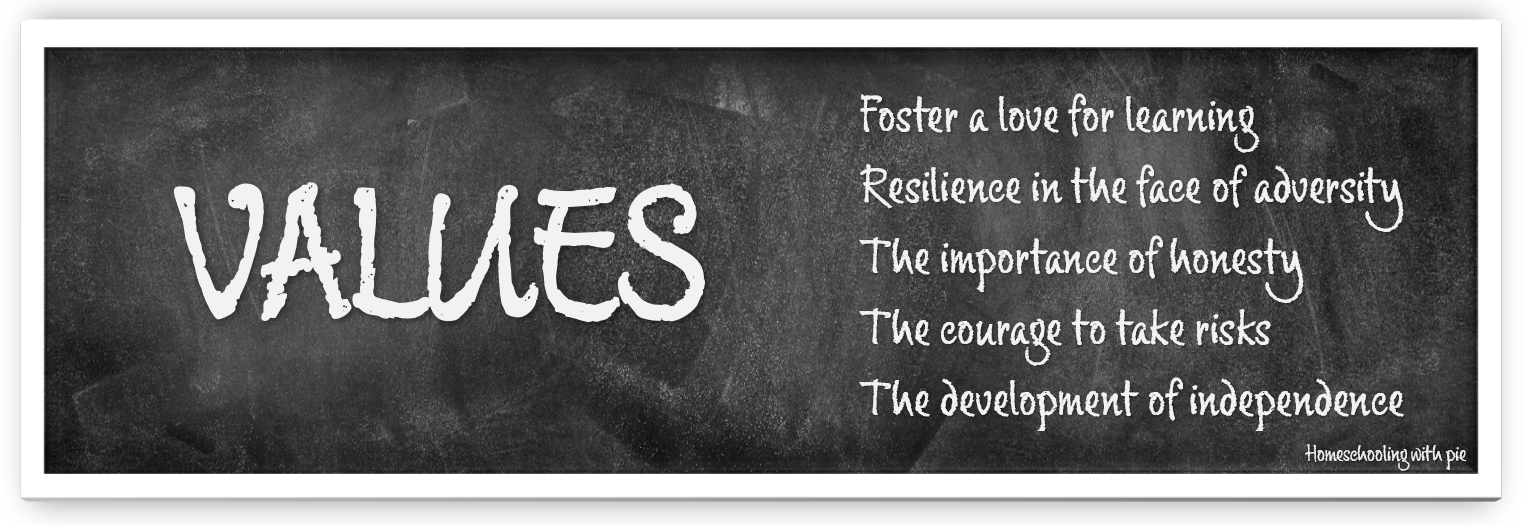LONG-TERM PLANNING: IDENTIFYING VALUES

Long-Term Planning: Identifying Values
Identifying Values: The Cornerstone of Homeschooling
In the realm of education, the values we hold are the compass guiding us through the intricate maze of choices and decisions. In homeschooling, the significance of these values is amplified, as they serve as the bedrock upon which the entire educational journey is built. Homeschooling isn't merely about teaching subjects; it's about instilling values, imparting knowledge, and nurturing well-rounded individuals. Therefore, identifying and prioritizing values is the cornerstone of any homeschool program.
The Role of Values in Homeschooling
Values, in the context of homeschooling, encompass a wide range of ideals and principles. They represent our motivations, ultimate objectives, and expectations for our children's education. In essence, values are the "why" behind the "how" of homeschooling. They shape not only what we teach but also how we teach it, and most importantly, why we teach it.
For homeschooling parents, values are the driving force that compels them to choose this alternative educational path. These values can be diverse and deeply personal, such as a desire for individualized learning, a commitment to providing a well-rounded education, or a longing for stronger family bonds. Each family's values in homeschooling are unique, reflecting their specific beliefs and priorities.
Fostering Independent Values
One of the profound values often cherished by homeschooling families is the opportunity to guide their children in identifying values independently. This includes values related to family, academics, and future career aspirations. Encouraging children to recognize and embrace their own values is a pivotal aspect of homeschooling.
- Family Values: Homeschooling provides a fertile ground for instilling and nurturing family values. The flexibility of homeschooling allows parents to incorporate the family's belief systems, traditions, and cultural values directly into the curriculum. This not only imparts a sense of identity and belonging but also strengthens the family unit.
- Academic Values: In a traditional school setting, children might absorb the values and expectations of the institution. In contrast, homeschooling allows parents to shape academic values that prioritize curiosity, critical thinking, and a love for learning. This fosters a lifelong commitment to education that goes beyond mere exam scores.
- Career-Related Values: Homeschooling can be a platform for helping children discover their passions and interests, which are the building blocks for career-related values. Parents can guide their children in exploring potential career paths and developing the values that will guide them in their professional lives.
A Core Value Within Homeschooling
While family, academic, and career-related values are essential aspects of homeschooling, there's one overarching core value that transcends them all: the value of flexibility. Homeschooling is synonymous with adaptability and the freedom to tailor the educational experience to suit the unique needs and interests of each child.
This flexibility is not just about choosing the curriculum or daily schedule; it's about adapting to the child's learning style, pace, and preferences. It's about exploring alternative teaching methods, diving into creative projects, and fostering a love for exploration and discovery. The core value of flexibility allows homeschooling to be a dynamic, evolving journey that adjusts to the changing needs of each child.
In conclusion, identifying and embracing values is the cornerstone of any homeschool program. These values not only motivate parents to choose homeschooling but also guide the entire educational journey. Homeschooling is a holistic approach that prioritizes family, academic, and career-related values, while its core value of flexibility ensures that each child's unique potential is nurtured. The recognition of values in homeschooling isn't just a choice; it's a commitment to nurturing well-rounded individuals with a strong sense of purpose and identity.
Long-Term Planning: Identifying Values